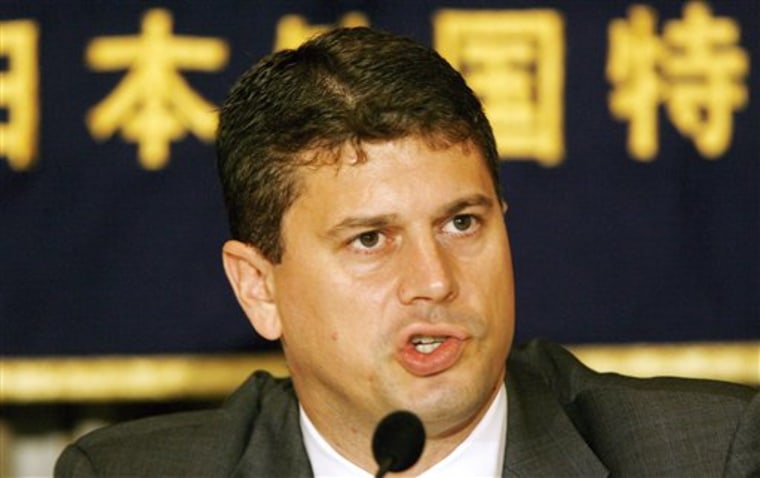A U.S. Treasury official said Monday the global credit crunch is gradually calming following efforts by the Federal Reserve and other central banks.
Clay Lowery, assistant secretary for international affairs at the U.S. Treasury, said the Fed and other central banks have coordinated their actions to protect the financial system from possible disruptions after the U.S. subprime mortgage crisis surfaced last year.
As a result, the availability of credit has improved "modestly," Lowery told the Foreign Correspondents Club of Japan.
He said U.S. financial institutions reported more than $300 billion in subprime-related losses, but that was alleviated by the raising of an additional $200 billion in capital.
"Already, we have seen some indication that this combination of actions is beginning to have the desired effect," he said.
Lowery also urged Japan to do more to prove its openness to foreign investment. Japan still lags behind other industrialized nations in encouraging investment from overseas. And investors are concerned Japan may not be fully committed to that effort, he said.
"It is therefore important that Japan sends a clear message that it is open to foreign investment," he said.
The Japanese government recently rejected a request from British hedge fund The Children's Investment Fund to boost its stake in a major utility, Electric Power Development Co., or J-Power.
Lowery said the recent spike in oil prices was mainly due to supply and demand factors and not to speculative activity. "I think there isn't much evidence of that," he said.
July light, sweet crude rose to an all-time high of $135.09 a barrel last week on the New York Mercantile Exchange. In electronic trading Monday afternoon in Asia, it was trading at $132.80 a barrel.
